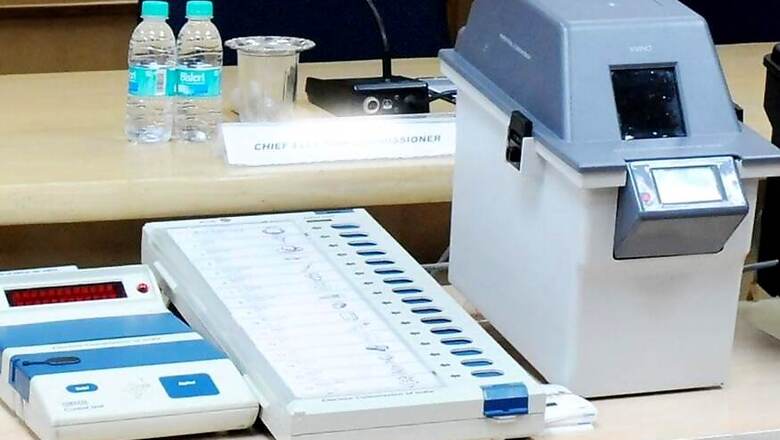
views
New Delhi: Two NGOs alleged in the Supreme Court on Monday that the Election Commission (EC) has violated election rules by destroying the VVPAT (voter verifiable paper audit trail) data of last year's Lok Sabha polls before the conclusion of the statutory one-year period.
The NGOs — Association for Democratic Reforms (ADR) and Common Cause — referred to the response received through an RTI application from the EC and alleged before a bench headed by Chief Justice SA Bobde that the VVPAT data was needed to be preserved for a period of one year — a rule of the Conduct of Election Rules.
"We do not look into it at the moment," the bench, also comprising justices BR Gavai and Surya Kant, said.
Appearing for the NGOs, lawyer Prashant Bhushan said the "shocking fact" had emerged in an RTI response and they would file an application in this regard.
The bench had earlier issued notice to the poll panel on the PIL seeking a probe into alleged discrepancies between the voter turnout figure and the number of votes counted in 347 constituencies during the 2019 Lok Sabha polls.
The EC has not filed its response to the plea, which will now be hard after four weeks.
The NGOs, in the plea, have sought a direction to the EC to formulate a robust procedure to investigate data discrepancies in all future elections.
Citing the research data of a team of its experts, the ADR said there were serious discrepancies between the number of voters in different constituencies, that is the voter turnout data collated and provided by the EC and the number of votes counted.
It claimed that the findings of the research revealed several discrepancies, including those in the master summary of 542 constituencies.
The ADR said the discrepancies ranged from one vote to 1,01,323 votes, which was equal to 10.49 per cent of the total votes. The plea further said there were six seats where the discrepancy in the number of votes was higher than the winning margin.
The petition has sought accurate reconciliation of data before declaration of poll results and a direction to the EC to bring in public domain the information in the statutory forms — 17C, 20, 21C, 21D and 21E — for last year's Lok Sabha polls and all future elections.
The petitioners said in order to uphold and preserve the sanctity of elections, it was imperative that election results were accurate and the discrepancies in the parliamentary polls could not be set aside without a satisfactory resolution.
They said the current statute allowed resolution of a dispute through an election petition but there was no provision available for resolution of doubts arising out of discrepancies in constituencies all over the country.
The EC had not laid down any prescribed system for "compiling, reconciliation and publishing of poll data and therefore, has been evading placing the methodology followed by it in public domain", the plea said.
It claimed that the poll panel neither shared the quantum of discrepancies encountered in the entire election process nor the methodology adopted by it for resolution of the same.




















Comments
0 comment